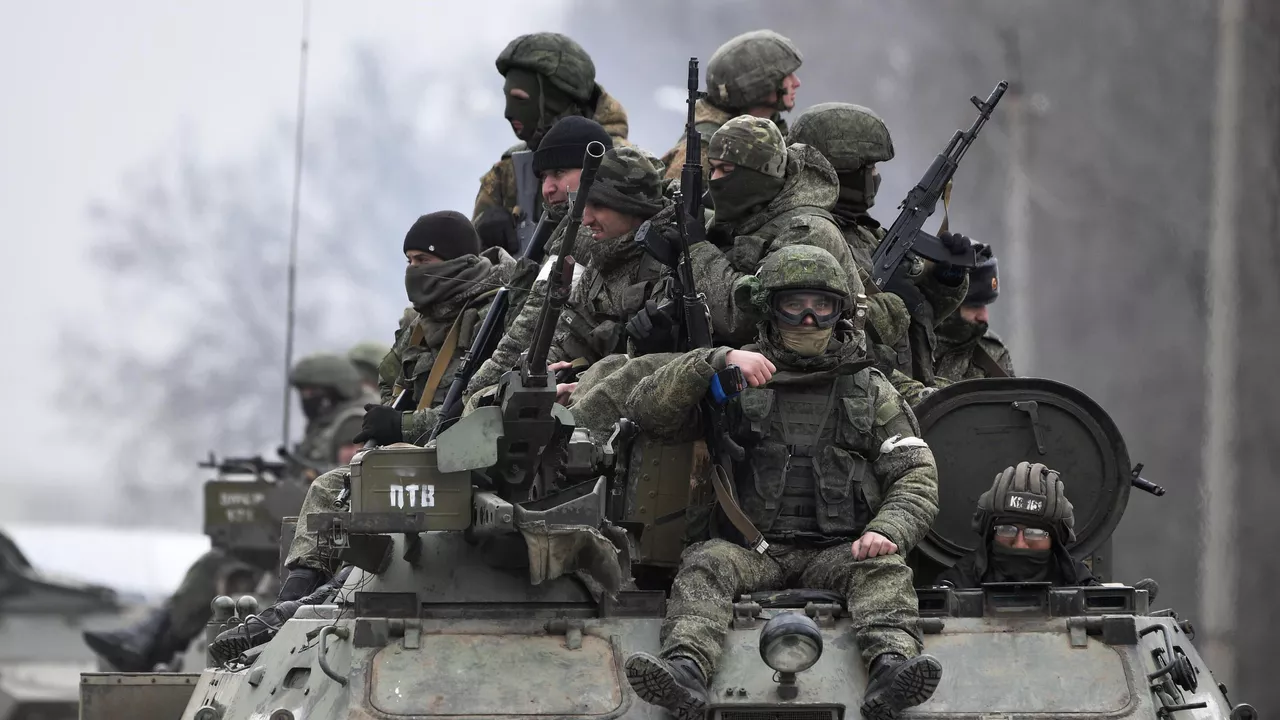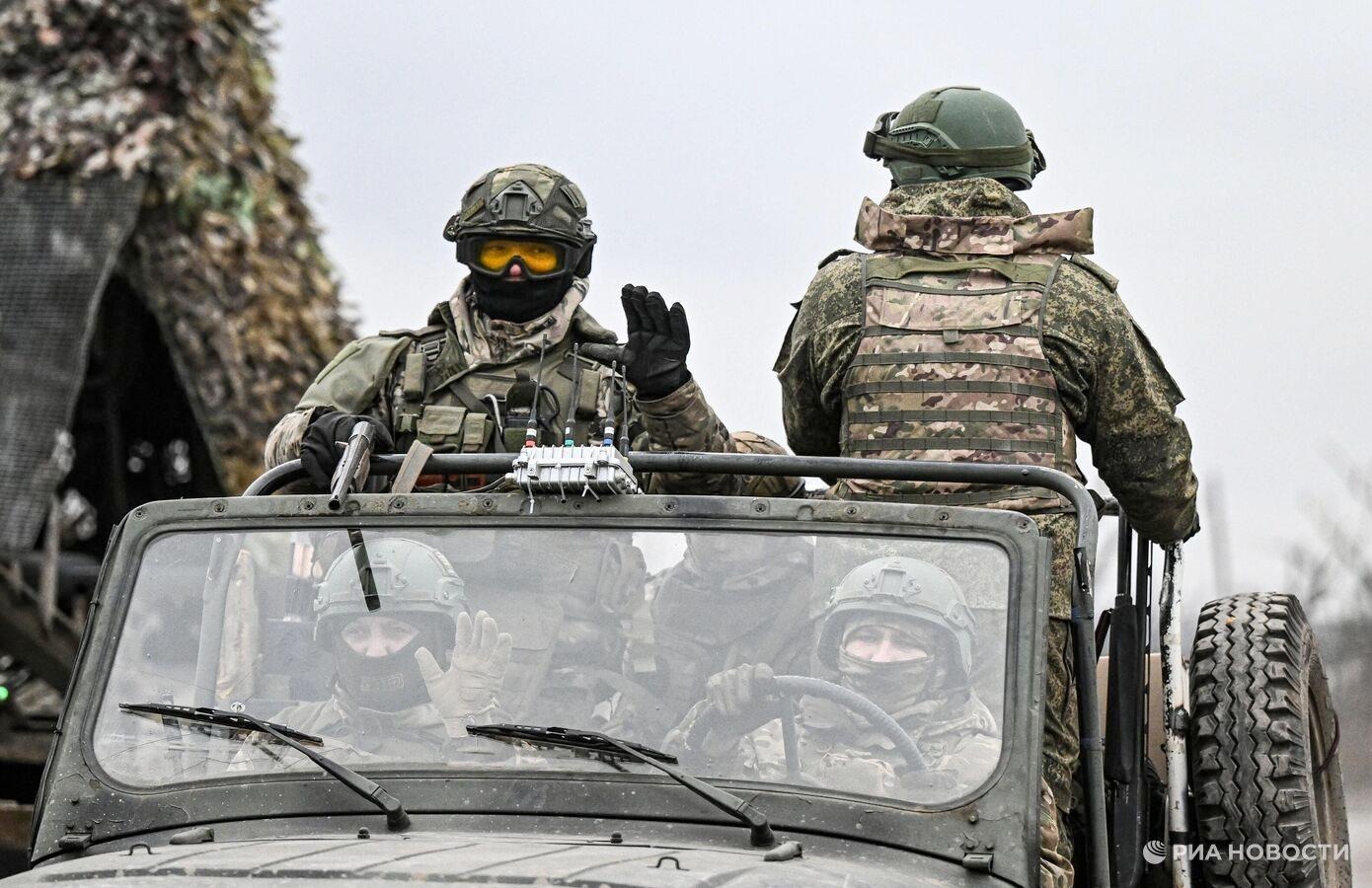
Kremlin Could be Preparing to Pause Its Invasion of Ukraine
Kremlin Could be Preparing to Pause Its Invasion of Ukraine
Executive Summary
- Sources close to the Kremlin have indicated that the full-scale invasion of Ukraine, the so-called “special military operation,” is nearing its inevitable end as resources for further offensive actions are running low.
- Part of the radical nationalist segment of the Russian population refuses to accept negotiations and instead demands complete victory despite pro-government media claims. A more serious threat, however, may come from those who profit directly from the war, including sanctioned Russian oligarchs.
- The Kremlin may intensify repressions or ultimately decide to resume hostilities to appease potential discontent from war profiteers. In the absence of an external enemy, the Russian regime will be forced to look for new “internal enemies.”
Since late 2024, media outlets close to the Kremlin have increasingly promoted the idea that the conclusion of Russia’s full-scale invasion of Ukraine is both imminent and inevitable. In December 2024, the Telegram channel Nezygar, which is linked to the Russian Presidential Administration, claimed that “the majority of society will perceive the end of the SVO [special military operation] as a victory for Russia,” while “dissatisfied patriots” would be marginalized (Telegram/Russica.RU, December 3, 2024). The channel’s authors stated that “internal policy overseers have been instructed to prepare for the operation’s conclusion and to frame its outcomes positively in public opinion.” They asserted that “the information space is under control,” war correspondents “will adhere to the directives given to them,” and society “will accept as victory whatever result is presented to it” (Ibid). As Russia’s war in Ukraine continues, it will increasingly continue to feel the strain domestically.
At the end of January, the Telegram channel VChK-OGPU, a well-known source in the Russian information space for “revealing secrets of bureaucrats, oligarchs, gangsters, and security forces,” warned that if the war does not end soon, “by 2026, the [Russia’s] economic situation will spiral out of control” (Тelegram/vchkogpu, January 31). The authors highlight the “catastrophic decline in the value of bank assets, which serve as guarantees for depositors” while noting that “losses continue to mount” (Ibid). Another blow to the banking sector could come from the increasing number of defaults on loans and mortgages (Ibid).
Although this channel has been designated a “foreign agent,” Radio Svoboda reports that it has ties to Russian security forces (Sibir Realii, July 12, 2024). Meanwhile, discussions about ending the war have gained significant traction in the previously mentioned Nezygar channel—this time emphasizing the need to rebuild a peaceful life. It contains strikingly candid remarks about how “the majority in rural areas … are tired of death notices” (Telegram/Russica.RU, February 4).
These new dynamics offer insight into whether the Kremlin feels the need to at least pause the active phase of the war. The Russian army does not have enough forces to capture new Ukrainian cities (see EDM, February 3). There are also serious doubts about whether the Kremlin has enough resources to continue the current intensity of hostilities if they drag on. According to independent journalists, the actual number of old Soviet and Russian tanks in storage had halved by the end of 2024 compared to stocks at the beginning of the full-scale invasion (see EDM, March 14, 2024; Re-Russia.net, January 16). By the end of the year, there were no more than 500 tanks in relatively good condition. Restoring the others presents a much more complex task and will take much longer (Ibid). Researchers estimate that tanks suitable for restoration and repair will be exhausted by the end of 2025 (Ibid).
The willingness to sign contracts with the Ministry of Defense is also decreasing and currently stands at around 40 people per day in Moscow. This figure was five times higher in late summer and autumn of 2024 (see EDM, August 7, September 19, October 10, 2024; Verstka.media, August 27, 2024, January 29). Journalists report an increase in the number of foreigners from the People’s Republic of China and African countries going to the front primarily for money and combat experience, while most Russians willing to go to war are those involved in criminal and administrative cases (see EDM, June 10, September 16, 2024; Verstka.media, January 29). This helps the Kremlin avoid a second mobilization, but if the war continues, the morale of mercenaries and difficulties with integration into the Russian army could affect its combat effectiveness. This was already the case with North Korean soldiers, whom the Russians had to withdraw from Kursk oblast at the end of January due to heavy losses (VoA–Russian Service, January 31). Economists also note a worsening business climate and rising inflation, which will worsen if the war continues (Re-Russia.net, January 31).
The radical-patriotic segment in Russia still exhibits a strongly negative attitude toward negotiations as a trap. They instead demand war to a victorious end. This is the position held by the authors of the website Military Review, which is close to the Russian Ministry of Defense. They call a possible deal with U.S. President Donald Trump a “dead end” and insist that Russia “cannot afford a deal that would ‘nullify’ the global goals of the special military operation and create a new conflict in the future” (Topwar.ru, January 24). Negotiations, in their view, are merely “the last way to deceive the Russians,” and the only way to achieve peace, in their opinion, is “just retribution to the Kyiv regime and the destruction of Bandera followers on Russia’s western borders” (Topwar.ru, January 30, February 1). The authors of the radical-right TV channel Tsargrad also lament that “Ukraine is falling into other hands while Russia hesitates” (Тsargrad.tv, February 5).
This does not mean the Kremlin has lost control over the radical part of society. These media outlets may not have yet received the corresponding instructions from the Kremlin and are meant to raise the stakes, so to speak, before the negotiations. Moreover, even if their discontent persists, it is unlikely that such radical members of Russian society will be able to seriously influence the situation.
A more serious problem for the Kremlin could be the forces that have become direct beneficiaries of the war, which, according to independent journalists, account for forty percent of the sanctioned Russian oligarchs (Re-Russia.net, January 15). The primary sources of these oligarchs’ incomes have become the absorption of foreign assets and the production of import-substituting goods and services (Ibid). The inability to maintain previous income levels in the event of the end of the war and the difficulties of transitioning the economy to a peacetime regime could cause dissatisfaction among this part of the elite.
At the same time, some observers believe that after the end of hostilities, the Russian billionaires may come under the scrutiny of Russian President Vladimir Putin. In their opinion, “one of the main themes that can unite Russians may become the redistribution of wealth and the restoration of social justice” (Istories.media, February 3). Moreover, giant enterprises are increasingly reminded of the violations during privatization in the 1990s and are wary of such a situation occurring again (Ibid).
In the absence of an external enemy, the Russian regime will be forced to look for new “internal enemies” and intensify repression if peace negotiations result in an economic crisis. It cannot be ruled out, however, that even with a new round of repressive policies, Putin will need a new version of an external threat to distract society from growing internal problems.


